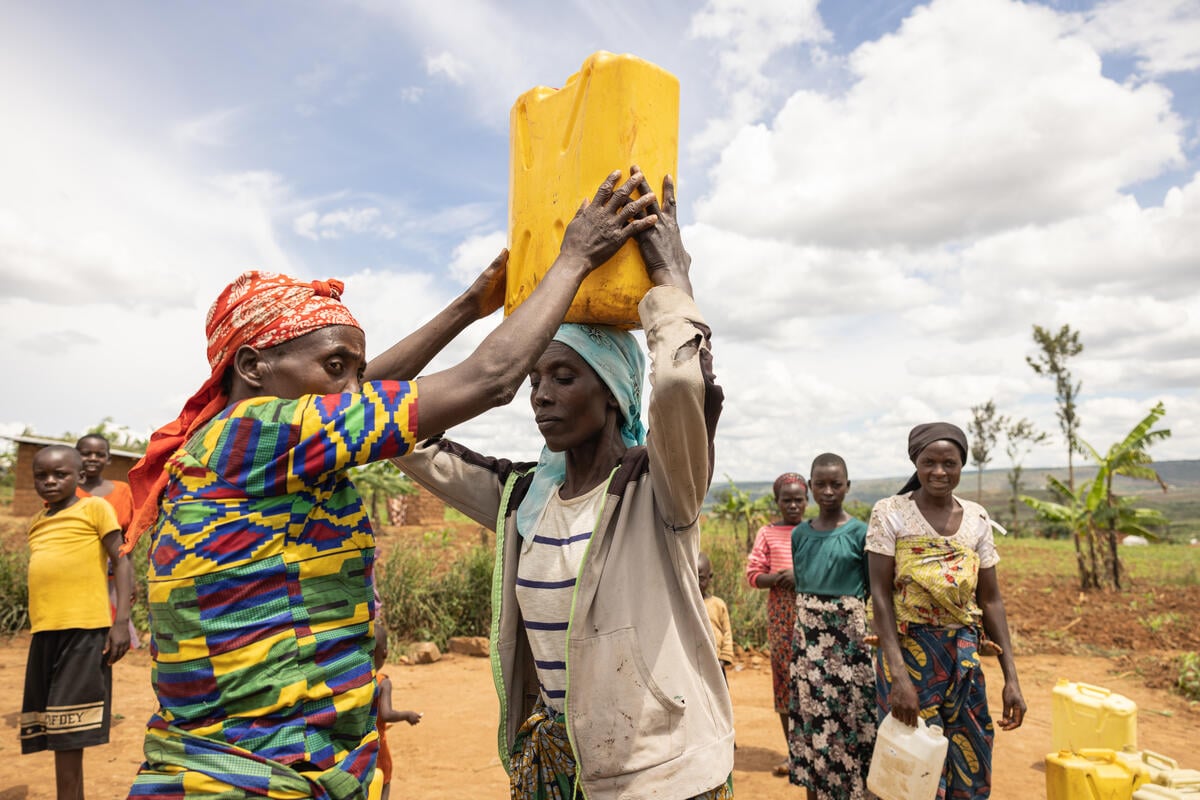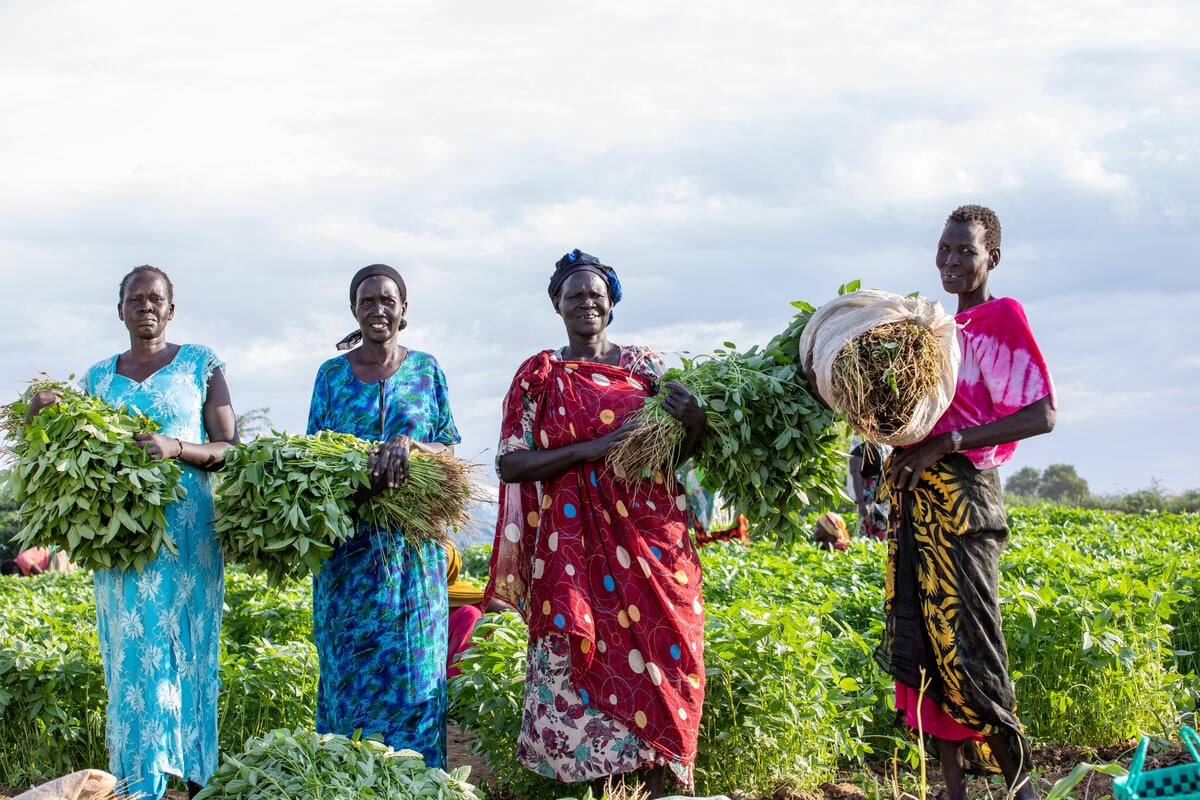UNHCR and UNDP join forces to find sustainable solutions for Congolese refugees and host communities
UNHCR and UNDP join forces to find sustainable solutions for Congolese refugees and host communities

KINSHASA, Democratic Republic of Congo (DRC) - Conflict in the Democratic Republic of Congo (DRC) continues to cause internal and external displacement. The increase in the number of Congolese fleeing across borders in 2018, particularly to Burundi, Uganda and Zambia, brought the number of Congolese refugees in Africa to some 800,000 as of November 2018. The majority of whom are women and children and nearly 55 per cent are under 18.
Neighbouring countries have been generous in maintaining an open-door policy and welcoming Congolese fleeing violence and armed attacks in their country. Protracted displacement is however straining the already limited resources of host communities in a region where half of the population lives below the poverty line.
UNHCR, the UN Refugee Agency, and UNDP, the UN Development Programme, have come together to address both the short-term impacts of displacement on host communities and the long-term needs of refugees who cannot go back home. Through a joint-programming exercise, the two UN agencies will support host governments in including refugees in national systems and will look for opportunities to further strengthen refugee-hosting areas in countries of asylum and areas of return in the DRC.
“This joint-programming exercise is not just bureaucratic talk”, points out Ann Encontre, UNHCR’s Regional Refugee Coordinator for the DRC situation and Regional Representative in the DRC. “By working together with other humanitarian and development actors to make livelihoods, health care, documentation and other basic services more accessible, we hope to make a real and lasting difference to the lives of refugees and host communities”.
David Clapp, UNDP’s Sub-Regional Platform Coordinator for East and Southern Africa underscores the importance of the joint effort. “This is our attempt to develop a more predictable and sustainable refugee response that brings together humanitarian and development actors in the short, medium, and long term”, he adds. “The goal is to create a new type of response to refugee crises that includes a development approach as a natural evolution of humanitarian programmes – to ‘walk the talk’ on the so called humanitarian- development nexus”.
Activities developed through the joint-programme will support the objectives of the 2016 New York Declarations for Refugees and Migrants and are also in line with the Comprehensive Refugee Response Framework (CRRF).
Strengthened governance, increased protection through rule of law and access to justice, the creation of employment opportunities, and environmental protection through the use of alternative sources of energy fuel are key objectives of the joint UNHCR-UNDP programme which covers the DRC and six neighbouring countries hosting Congolese refugees: Angola, Burundi, Rwanda, Uganda, the United Republic of Tanzania, and Zambia.
In Angola, the Lóvua municipality hosts more than 19,000 refugees - more than its own population. The joint-programme aims to improve social cohesion and co-existence between refugee and host populations by increasing livelihood opportunities for all.
The Mantapala refugee settlement in Zambia, a country where 64 per cent of the total population lives below the poverty line, is home to over 13,000 refugees from neighbouring DRC. The joint-programme will make opportunities for women entrepreneurs and access to markets and services a priority, benefiting both refugees and locals.
In Burundi, cooperation between UNHCR and UNDP will focus on strengthening rule of law and access to justice, which play an important role in the mitigation of tensions between host and refugee communities.
UNHCR, together with 56 humanitarian and development partners, launched an appeal of US$ 743 million in December 2018 to help respond to the needs of refugees from the DRC and their host communities in Africa.
You can find the joint programming document here:
UNHCR: https://data2.unhcr.org/en/documents/download/67603
UNDP: http://www.glrsf.org/news/123-unhcr-undp-joint-programming-initiatives-for-the-drc-situation
For more information:
UNHCR Kinshasa: Stylianos Kostas, [email protected]
UNDP Nairobi: Massimo Nicoletti Altimari, [email protected]









